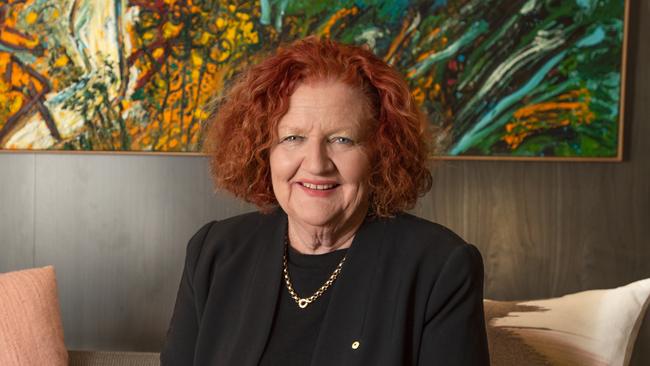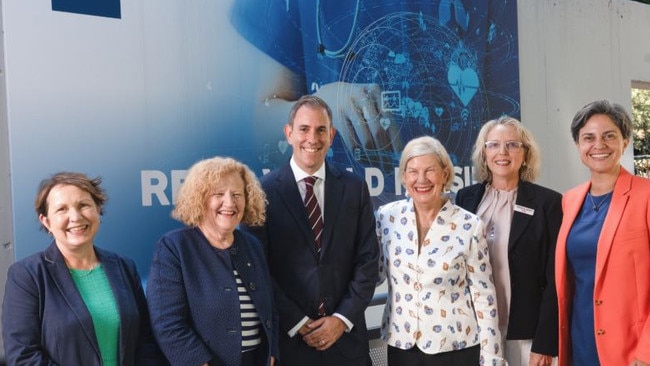QUT to become fifth QLD uni offering medical degrees
QUT will become the fifth Queensland university to offer a medical degree, with its first intake of students planned for 2027.

QLD News
Don't miss out on the headlines from QLD News. Followed categories will be added to My News.
The Queensland University of Technology has announced it will offer a five-year medical degree aimed at school leavers as well as third-year uni students, with the first intake of 48 starting from 2027.
It was still working through accreditation for the innovative program but if approved QUT would join the University of Queensland, Griffith University, Townsville’s James Cook University and the Gold Coast’s Bond University in offering medical qualifications.
“This program will ensure that Queensland’s talented, aspiring doctors will have the opportunity to train right here in their home state and to serve their communities where they are needed most,’’ Vice-Chancellor Professor Margaret Sheil said.
“We are working to deliver a streamlined pathway into medicine and will ultimately equip our graduates with the skills to provide high-quality, community-based care.
“It’s a real-world solution to Queensland’s healthcare needs now and into the future.’’

The move would provide a much-needed option for hopeful future doctors unable to afford Bond’s full-fee $440,000 double degree or those who missed out on limited places at UQ.
There have been complaints for years that UQ prioritised overseas, full fee-paying students over even the brightest local school leavers.
It also made local students take undergraduate entry degrees at its campus, with no guarantee they would pass the Graduate Medical School Admissions Test.
RACGP Queensland chair, Cath Hester, welcomed the news.
“The RACGP is very supportive of all efforts to expand the training of doctors with an emphasis on primary care, general practice and areas of priority workforce need,’’ Dr Hester said.
“We look forward to working with QUT as they design innovative new approaches to medical program delivery.’’
AMA Queensland president Nick Yim also applauded QUT’s plans, particularly because of the focus on general practice.
“Personnel shortages are the biggest challenge our health system faces,’’ Dr Yim said.
“We need more medical students, but we also need to ensure those students have secure career pathways.
“That means more graduate training places and incentives to attract and retain doctors in both the specialties and regions we need – especially in rural Queensland.’’
QUT said eligible students could enter medical training directly from high school and graduate with less education-related debt than other, longer pathways.
The planned curriculum is designed to address the state’s urgent healthcare workforce shortages, particularly in general practice, with a strong emphasis on community-based care.
QUT’s new School of Medicine is currently undergoing Australian Medical Council accreditation for an undergraduate entry Doctor of Medicine program, as well as a lateral-entry option in the third year for graduate students.
It claimed it would offer the most streamlined public pathway to a medical degree in Queensland.
The course structure will prioritise early real-world clinical experience including flexible part-time work in the final years.
The program will also link with specialist training colleges and Queensland Health to reduce overall training time.
QUT medical students will fill clinical placements in areas with high demand for medical professionals, initially in outer metropolitan areas and progressing to clinical experience in key regional centres.
There will be dedicated pathways for eligible students from rural and remote communities, lower socio-economic backgrounds and Aboriginal and Torres Strait Islander communities.
“We must continue to strive for a clinical workforce that reflects the diverse communities health practitioners serve, particularly in rural, remote, and outer metropolitan areas,’’ QUT Dean of Medicine Professor Jen Williams said.

“QUT’s medical program will provide opportunities for aspiring doctors who come from, train in, and ultimately choose to practice in the areas and communities that need them the most.”
UQ currently offers a four-year graduate-entry Doctor of Medicine (MD) program, as well as a provisional entry pathway for school-leavers.
The MD program is offered in Brisbane for graduate entry students in year 1.
From 2025, all four years of the MD program will be offered in Bundaberg/Hervey Bay or Rockhampton.
Griffith University offers an accredited degree in medicine, while James Cook University offers a Bachelor of Medicine, Bachelor of Surgery (MBBS) degree.
Bond University’s Medical Program is comprised of two sequential courses, a Bachelor of Medical Studies (BMedSt) and Doctor of Medicine (MD) which take a combined four years and eight months.
More Coverage
Originally published as QUT to become fifth QLD uni offering medical degrees





